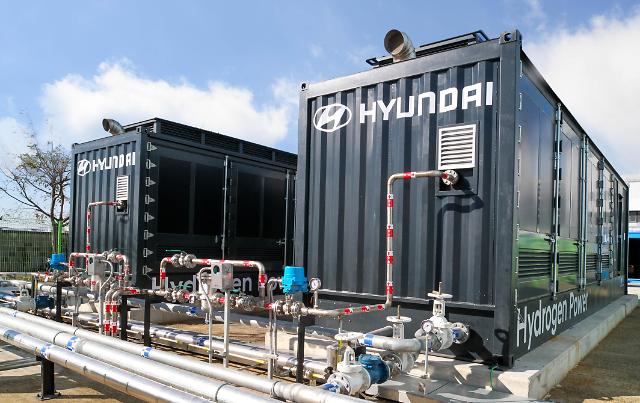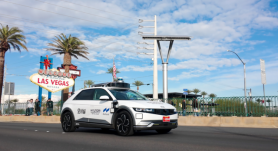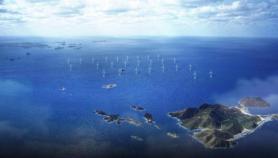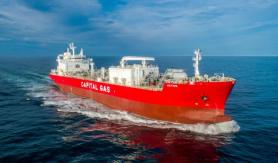
[Courtesy of Hyundai Motor]
Hyundai will develop hydrogen commercial trucks for use at steel mills, while POSCO will use byproduct hydrogen as an energy source for hydrogen trucks. They would build hydrogen charging stations in steel mills and push for the joint development of technologies related to green hydrogen production and next-generation materials. Green hydrogen is produced from water using renewable power while blue hydrogen is derived from natural gas with carbon capture technology.
"The paradigm shift to a hydrogen economy to achieve carbon neutrality is a challenge for all industries and companies and an essential factor for sustainable future implementation," said Hyundai Motor Group chairman Chung Eui-sun. "We will contribute to the creation of a robust hydrogen industry ecosystem through cooperation with POSCO."
POSCO will develop green hydrogen manufacturing technology using ammonia, which is a combination of hydrogen and nitrogen and is considered the best material for the efficient and economical transportation of hydrogen. Hyundai will push for a fuel cell power generation project using green hydrogen. They would actively seek opportunities for their participation in overseas green hydrogen production projects.
"We will secure hydrogen economic initiatives by finding various opportunities for a cooperative system in which Hyundai Motor Group uses hydrogen produced and supplied by POSCO," said POSCO chairman Choi Jeong-woo. In December 2020, the steel group selected Fortescue Metals Group, an iron ore company in Australia, as a foreign partner for green hydrogen projects.
POSCO has promised to complete a five-million-ton green hydrogen production system by 2050. Currently, the steel group produces 7,000 tons of hydrogen annually and extracts about 3,500 tons of by-product hydrogen. POSCO plans to raise the production capacity of byproduct hydrogen to 70,000 tons by 2025 and produce up to 500,000 tons of blue hydrogen by 2030.
Copyright ⓒ Aju Press All rights reserved.



